We recently connected with Garrett Langebartels and have shared our conversation below.
Garrett, thanks so much for taking the time to share your insights and lessons with us today. We’re particularly interested in hearing about how you became such a resilient person. Where do you get your resilience from?
For me, resilience is something that has developed incrementally over many years of trial and error. It isn’t something you wake up and have, but in a sense it is earned, or gifted to a person by meaningful suffering and the passing of time. What I mean by meaningful suffering is something that you experience that acts as an invitation to become stronger. Something like having sore legs when you first start running, or feeling the mental exhaustion from your first semester of college. Suffering of this sort can sink you or cause you to grow. It is in the suspended space between sinking and growing that we find the invitation. What you do with that invitation determines if you will become more or less resilient. That’s where the passing of time comes in. For many of us, the modern world has imparted a mindset that to grow in grit you need to get through hard things as quickly as possible. For me, I have had to learn to let life happen at the speed of time. If our endurance isn’t at a level where we can work 6 days a week, we need to submit to time and work our way up to the level we want to be at. We need to learn ourselves and learn to pay attention to our energy levels. A person doesn’t become more resilient by burning out. They become more resilient by finding their edges, pushing a little past them and then resting until you feel ready to keep going.
In my life there have been many of these invitations. When I was young, it would have been things like learning to skateboard. Skating is an activity that begins very slowly, like a child learning to walk. You have to first get comfortable standing, then pushing, then trying to figure out how to ollie, then flipping the board and so on. Each step comes with bruises, sprains, and cuts, but if you allow those things to heal and analyze what each suffering taught you, when you go to step back on the board you will have become more confident, more resilient and you will be able to push that edge back again. Those same principles came with learning guitar, going to college, moving to new cities and countries, getting a job, moving to management, starting my own business, starting a second business, growing a garden. Everything we do it is a cycle of small manageable risk, success or failure, reflecting and learning, and trying again. Success is not given or deserved to me. It is earned through the small lessons life offers you. Resilience comes from an unequivocable commitment to that process.
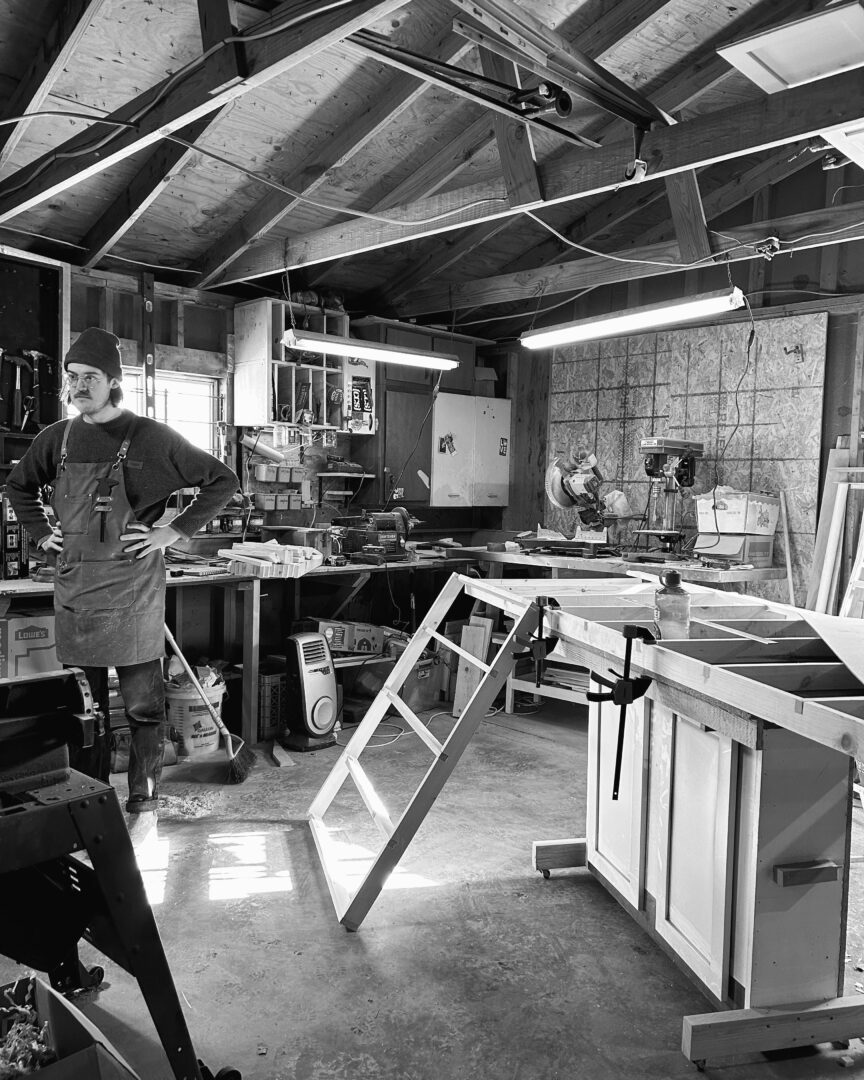
Thanks for sharing that. So, before we get any further into our conversation, can you tell our readers a bit about yourself and what you’re working on?
In general, I would say I am an artist business owner. My two current mediums are wood furniture making (Naptime Designs) and record producing, which is how I spend the majority of my time. My partner and I own a recording studio called Naptime Recordings that is built in the basement of my home. My favorite type of work is collaborating with artists and designers to help realize a vision they might have, while imparting my own taste. I started as a solo artist in early high school, so that was where I cut my teeth and learned to develop my own taste. I think as an artist, developing a sense of taste is one of the most important things you can do and learning to do that early on gave me a leg up when it came time to invite others into that space. Music production can be a kind of hazy job description. I have collected a wide variety of skills over the years, but what became quickly apparent to me is that those skills aren’t the most important thing I have to offer, but rather the taste I developed. My brand or my creative mission, is not to proselytize my taste but rather to allow my taste to be in conversation with my collaborators. I find, especially with music, many projects that involve a single person often lack a certain depth. So with that knowledge I have gone on a journey, at times an excruciating one, to be willing to be wrong, but also to be willing to question the things that come in contact with my creative intuition. At the end of the day, the realizing of my own dream is secondary to the songwriters and designers, but it is the willingness to be vulnerable with my thoughts, that creates some special ground to grow new works in. Everything I do and make has the stamp of my place and people past and present. Even the works I make in solitude carry those influences.
Another important part of my ethos or brand is that the things I make rise to an appropriate level of maturity for where I am in life. What that looks like is making things that are aware of their influence on the world and who is willing to accept the consequences of those works, both good and bad, adjusting accordingly. In music, that is a little more abstract, but it is something that needs to be a part of the conversation. The arts community has been stricken with mental illness, addiction and alienation for as long as it has existed, so I want the works I make and am influencing, to carry a sense of maturity, depth, community and thoughtfulness. I want them to face my own and my communities insecurities head on challenging people to be more aware and to invite them to become healthier. Maturity in creativity means looking out for more than your personal interest and ego to the betterment of others.
In furniture, that is a little more concrete. I think with any goods that are being manufactured, you are bound to face a lot of opportunities to choose maturity and health. When I was starting, I knew I could not start a business producing goods if it was extracting resources irresponsibly. So I decided I was going to work as much as possible with materials that are locally grown and sourced, and the end goal is that you can take what I have made and throw it in the woods when you are done with it rather than throwing it into a landfill. So that being said, my flagship chair (‘the Parents Chair’) is made using locally harvested lumber, and a seat made of tightly wound paper called Danish Paper Chord and a few small nails. It is finish in natural oils and would love to be used for 100 years and tossed into the compost bin when it has served its purpose. I want my works to further the growth of the people they come in contact with in a positive way. I work with virtually no waste, because the wood shavings are composted and the scraps heat my shop (and the ash ultimately goes to compost).
I have several records in the hopper that I am currently working on and a few coming out this year that I am excited to share. I feel like I have been incredibly lucky to have been able to collaborate with so many great artists and I am so proud of the work we made. Follow my Naptime Recordings IG to keep up with those acts.
My furniture business is just getting started. In January I started offering my Parents Chair and I have been fortunate enough to make several collaborative pieces with my partner Shea and other designers. We are currently working on the next profile of chair to be available and are always taking custom orders.
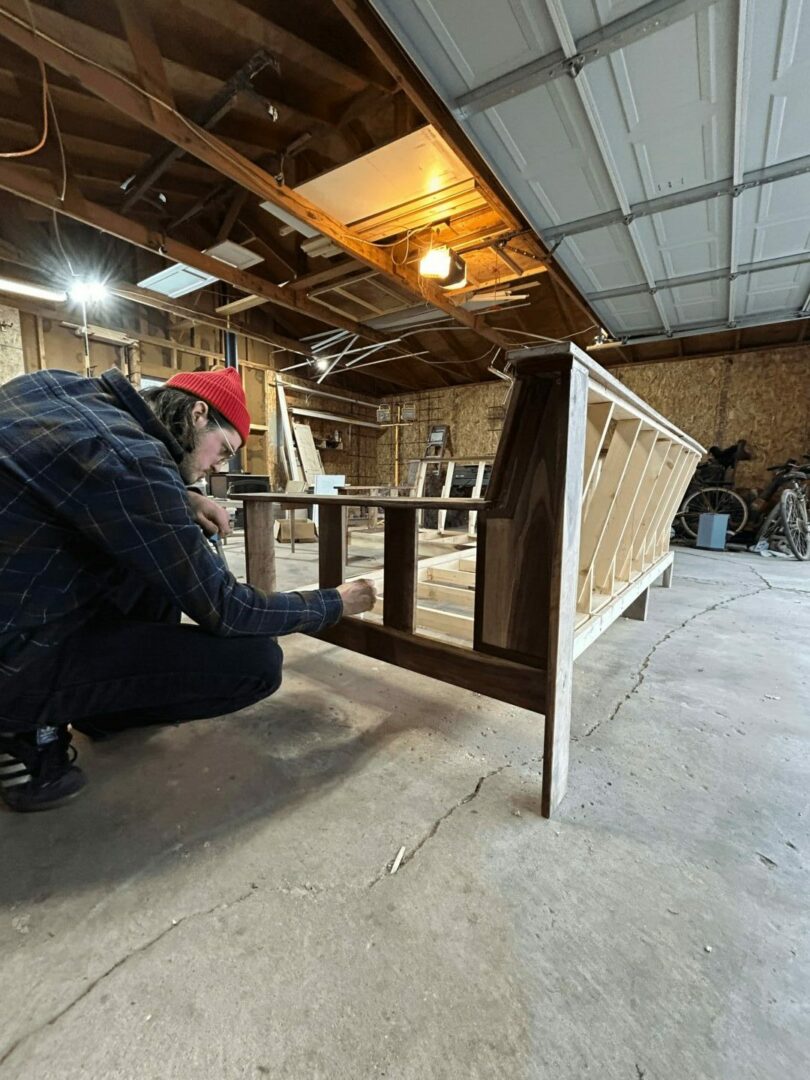
Looking back, what do you think were the three qualities, skills, or areas of knowledge that were most impactful in your journey? What advice do you have for folks who are early in their journey in terms of how they can best develop or improve on these?
I would say the first most important thing I’ve gained along the way is the ability to self-learn. Being an artist and an entrepreneur tends to lead you into regular situations where you are faced with gaps in your knowledge. Gaining the ability to gage if you can figure something out on your own or if you need to go to a book or a trusted teacher is a really important skill. Depending on your learning style, that might look different, but for me I have collected a pretty good set of resources including mentors, family, Youtube pages, books and most importantly, my failures. When I was a kid and I ran into something I couldn’t figure out, I would go to my parents and ask them. Before they gave me the answer, they would do one of two things. They would either help me break the word down into smaller parts or they would tell me to look it up. Typically that would be in a paper dictionary or an Encyclopedia Britannica. For younger readers, just pretend I said google. That used to annoy the hell out of me but in the long run, I learned how to find answers to my own questions when I needed them rather than waiting for someone to come along who had the answer. I think for people getting started or people who are struggling to make a career work, it is important to face your struggles with humility and openness and then to try your best to find the answer with the resources you have. When you find something you think might work, try it and allow that to inform your next attempt.
I think another skill I have learned has been emotional awareness and fortitude. This is sort of an in progress skill, but making things and working with people has a way of bringing you to the doorstep of all of your insecurities. I joke that mixing a song is a roller coaster. At some point in every mix, I question if I should even be mixing a song and at another point I feel like I am an unstoppable genius. I think most makers feel something like this in the process. In one moment it is love and in another its hate. As time has gone on, the thing that has allowed me to engage my emotions positively is to start any activity by observing what is already there. Early on, I would open a file and start making changes. I think the result of that type of immediate work is we don’t make choices, but rather we have reactions. My longevity as an artist depends on my ability to slow down, take breaks, live a life and approach my work with humility. If I am getting frustrated, I take a break and have lunch. If I feel like a song is getting worse, I close the file and work on something else. I try not to do things that are especially time sensitive because someone else’s pour planning should not interfere with my peace. Along with that, I know that I would rather keep a part time job or build up some savings so that I am not working in situations of financial desperation. We tend to take jobs that will fry our emotional stability out of desperation rather than inspiration. Its better to chase the latter. At times I have chosen boredom over in an office or a more practical carpentry job rather than dealing with something that isn’t inspirational. Those jobs almost always make life harder emotionally and more often than not are a financial suck.
I think on a very practical level, basic high school math has been extremely important. Knowing how money works, how credit works, how to keep a ledger book, and how to do the algebra to forecast what I need to make in a year. For a business like mine, if I have to pay someone to manage or keep my books, I cut into my bottom line a lot. Its not glamorous but running a lien business allows you to avoid debt, unneeded stress, and it gives you the ability to be aware of your needs now and in the future. Then, when you get to the point where your earnings and time demands require you to hire out some of that, you are able to manage that work intelligibly. Its obviously possible to make a business work without that knowledge but I have found it to be immeasurably helpful.
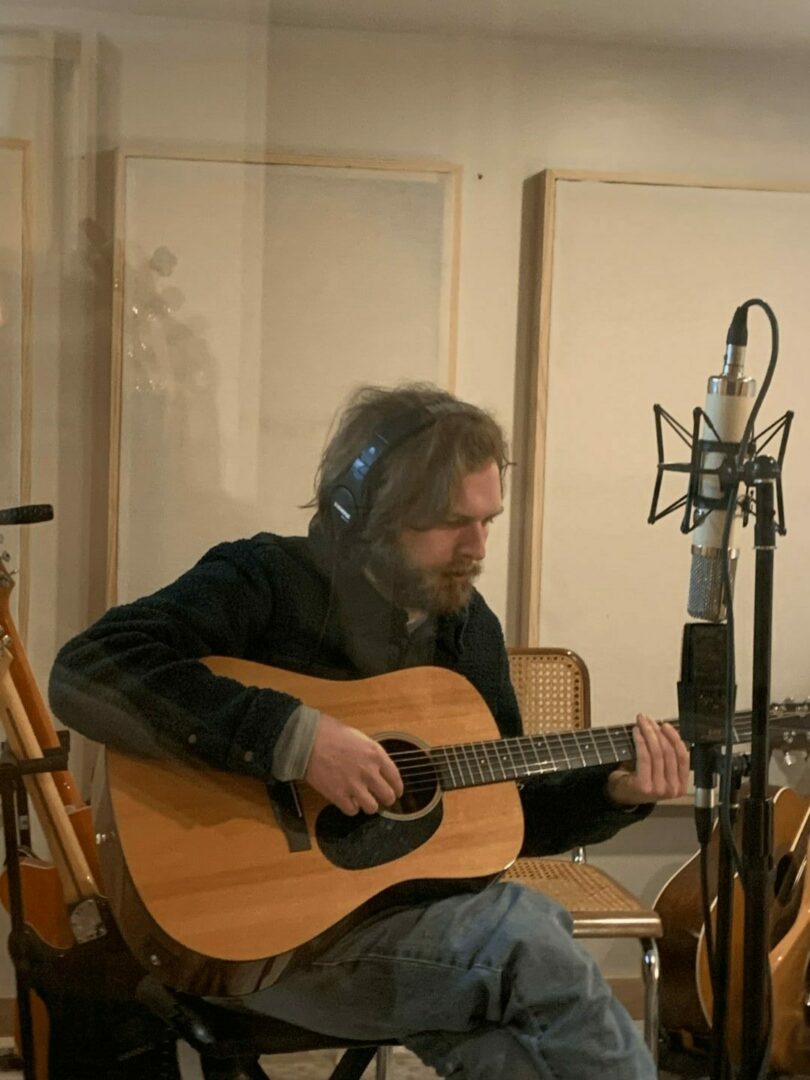
How can folks who want to work with you connect?
Yes. I am always looking for folks to collaborate with. In music, I am looking for clients who are deeply invested in the quality of their work. I love working with people who want to tell a story or explore an abstract idea, especially in the music. I generally gravitate towards songwriters because, being one myself, I like to produce with a song in mind rather than composing something to be toplined over. I want to work with people who are willing to trust the process and are willing to try things and occasionally admit they hit a dead end. In furniture, I am looking to work with designers who appreciate a certain amount of humanness in their work. Most of my pieces are at least partially, if not entirely, shaped by hand. The goal is perceived symmetry and balance. I work more like a sculptor rather than a production furniture shop. I interact with the materials so each piece, even in a dining set, would stand on its own. I love working with designers and individuals who want to have input and who appreciate the intention in the work. In both, I appreciate people who aren’t looking for immediacy and are committed to the conversation and process.
If anyone wants to chat about working with me, they can reach me via Email or just by dropping me a DM on IG. I try to keep up with both of those.
Contact Info:
- Website: https://www.naptimerecordings.com/
- Instagram: @naptimerecordings
- Other: For the furniture work follow @naptimedesigns_ on IG. We haven’t launched a website yet.Naptime Designs related inquiries can go to naptimedesignsIND@gmail.com
Production inquiries can go to naptimerecordings@gmail.com
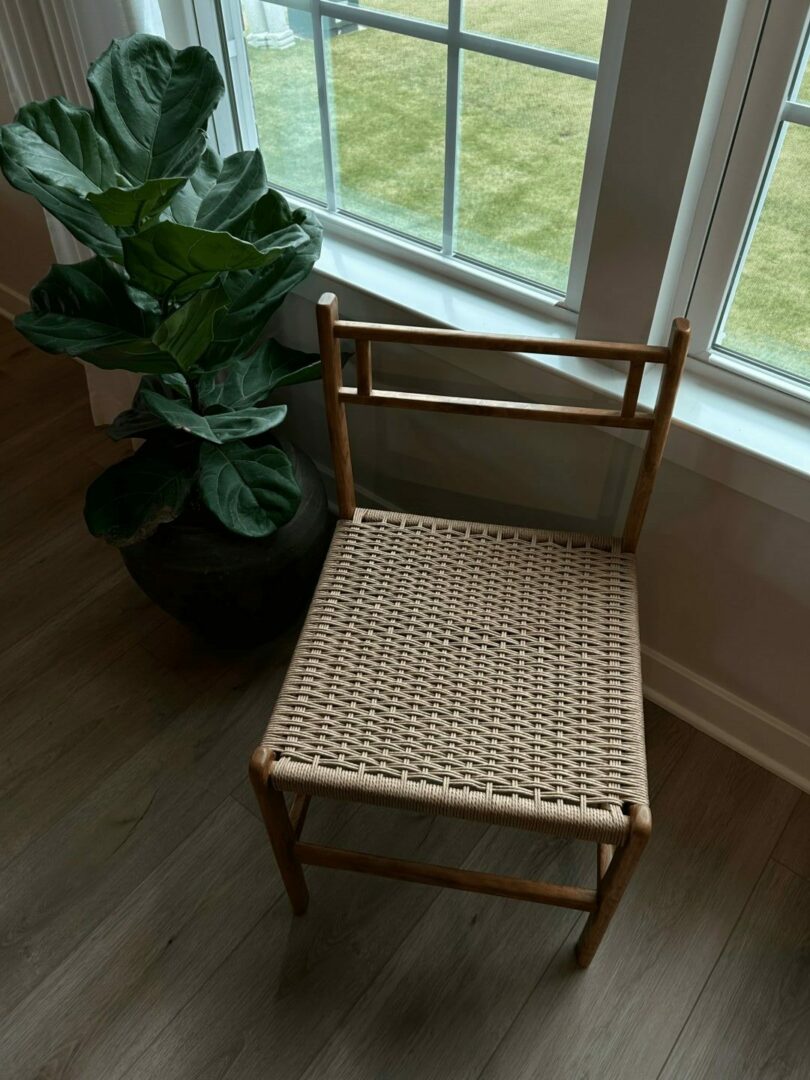
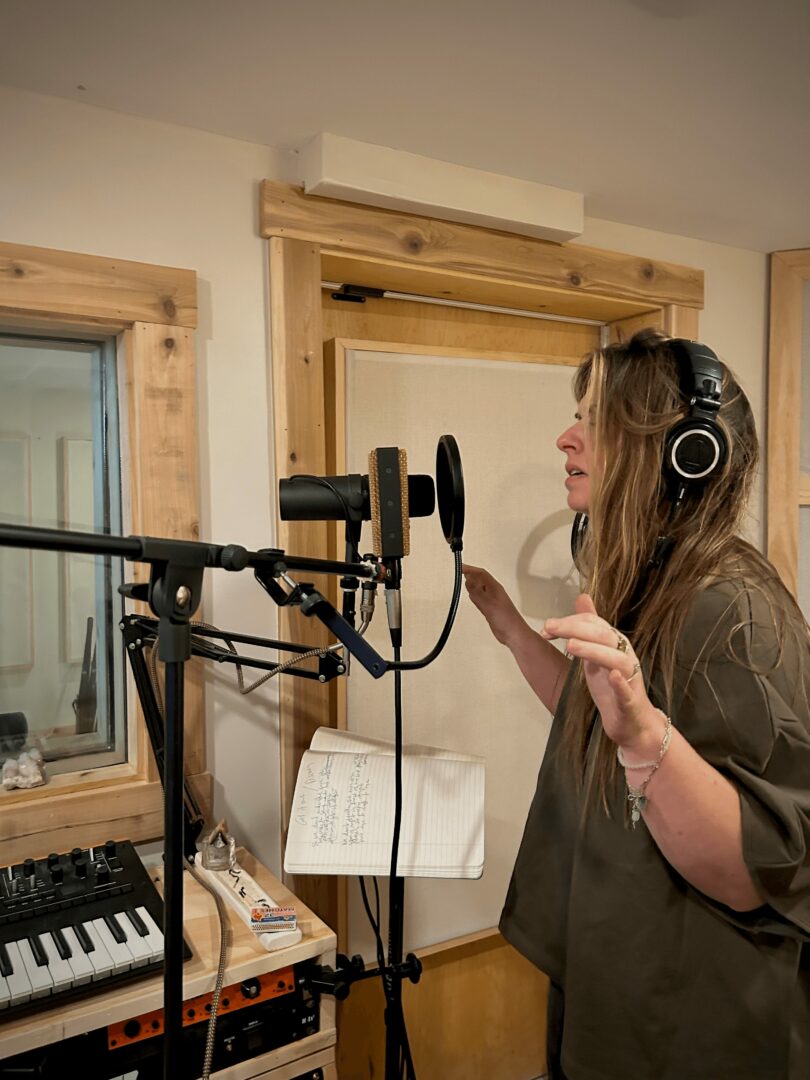
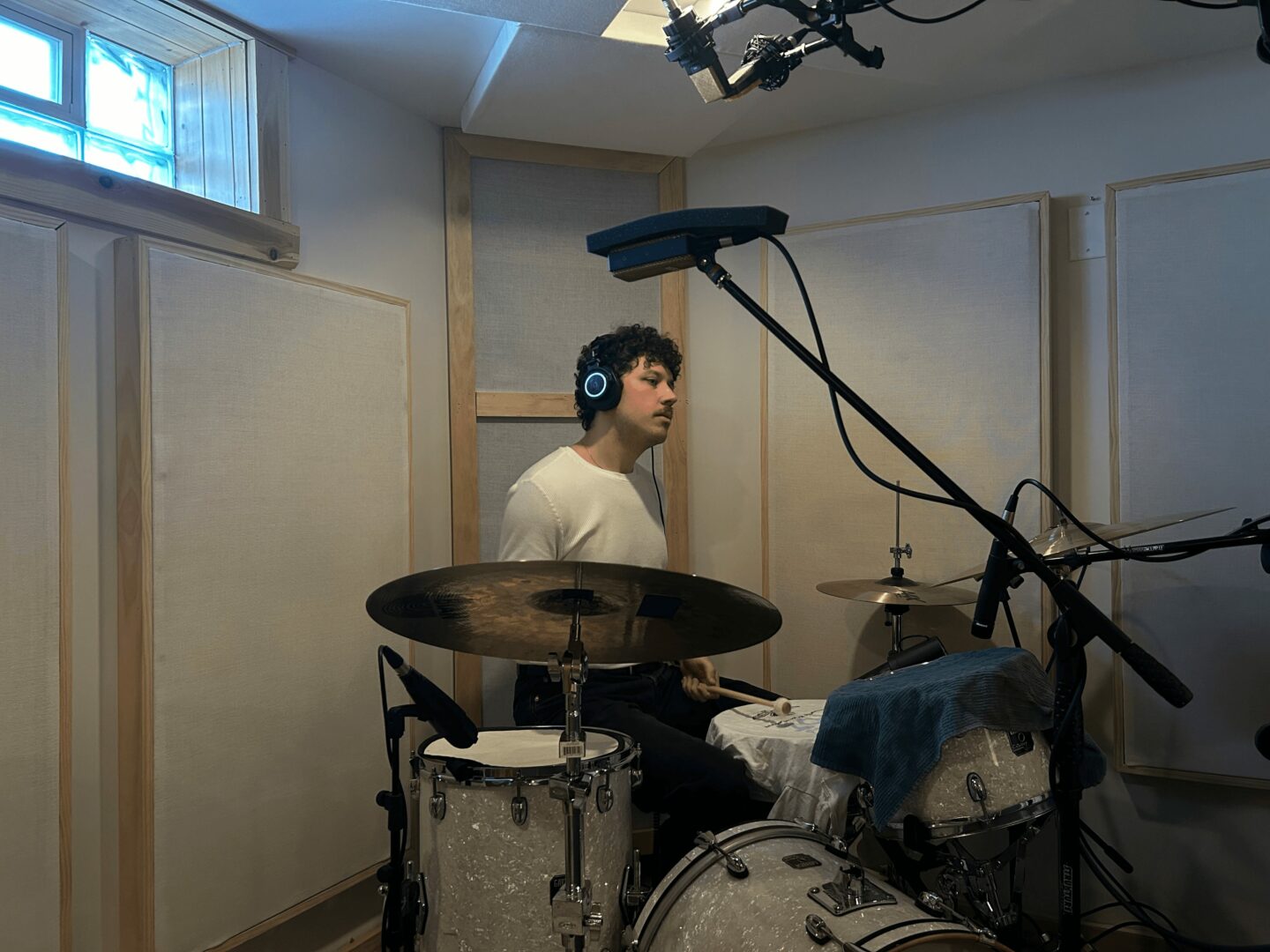
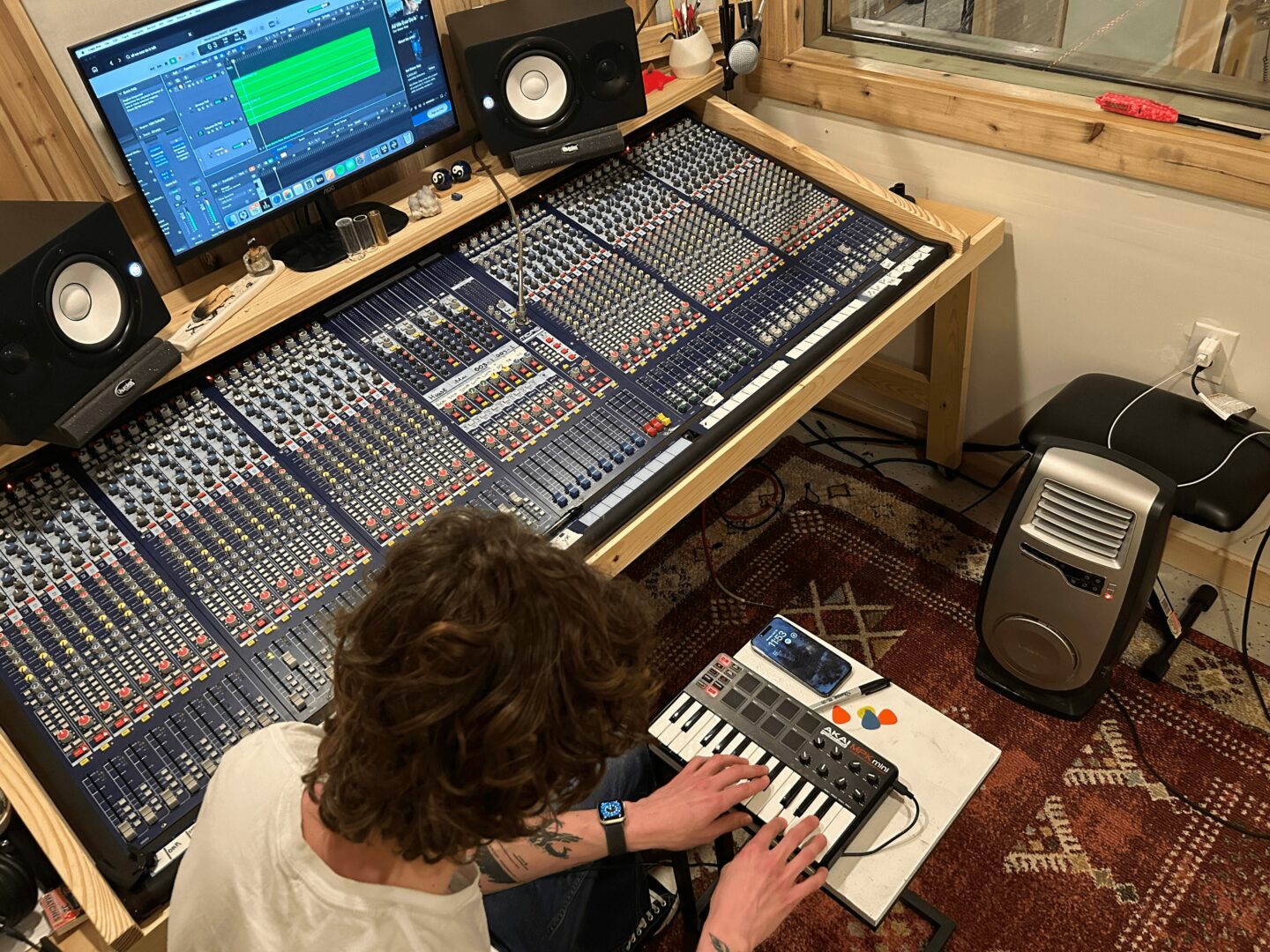
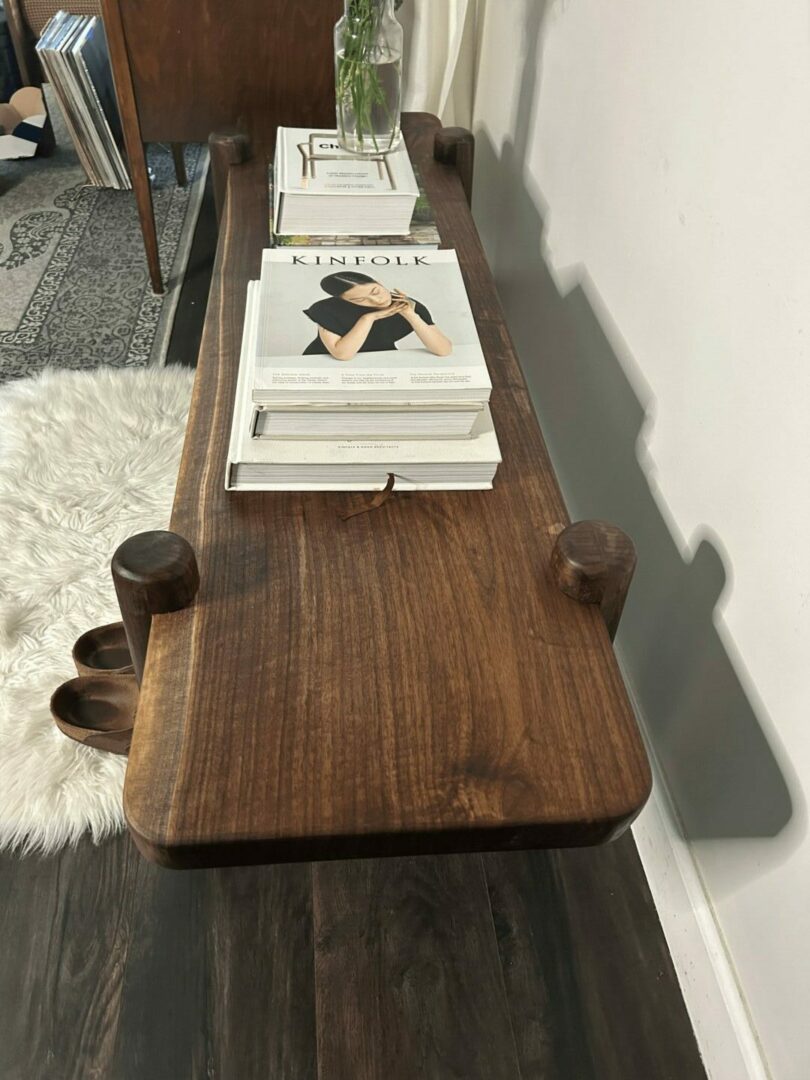
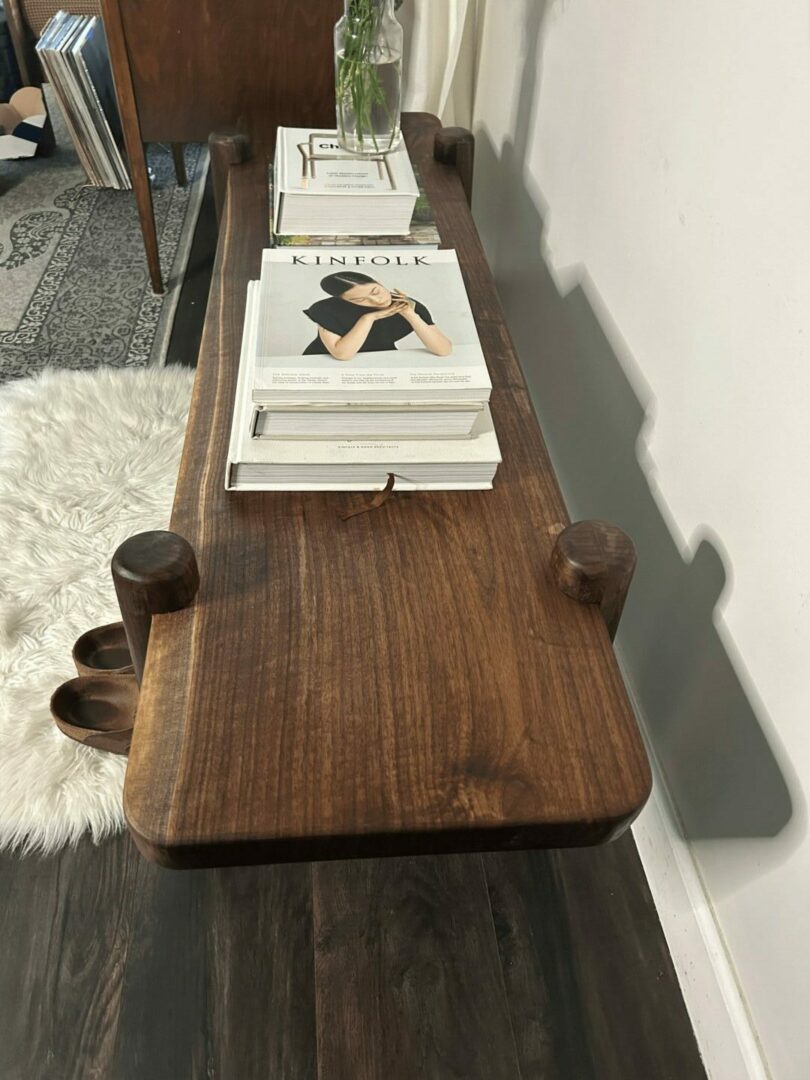
Image Credits
Shea Langebartels
so if you or someone you know deserves recognition please let us know here.




